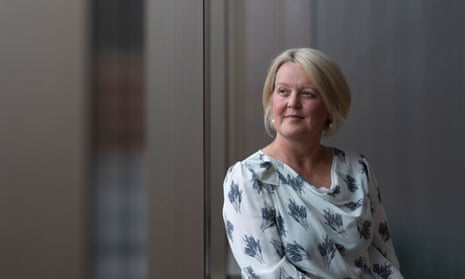Watching the spectacle that has played out over the past fortnight over Nigel Farage and his Coutts bank accounts, which resulted in the forced exit of one of the UK’s most high-profile and effective corporate leaders, two questions strike me: has the response been proportionate, and if not, why not?
Alison Rose, who resigned on Wednesday as chief executive of NatWest Group, which owns Coutts, clearly made a serious error of judgment in discussing the former Ukip leader’s case with a journalist. It was an error she accepted and for which she readily apologised. But rather than allowing for any due process, loud voices have followed this story doggedly, with the effect that her resignation was all but assured. Those commenting have included the City minister, the home secretary, and the prime minister himself. Of course, the government is the shareholder in NatWest, after bailing out the bank during the financial crisis.
Still, I can’t help but wonder – was Rose held to a higher standard because she was a woman? Several senior figures in the financial sector I’ve spoken with are asking the same thing.
Admittedly, she has not been the only one held to account for the Farage fallout. Her colleague Peter Flavel, the boss of Coutts, followed her out of the door less than 48 hours later. There are numerous examples of other bank bosses who have made grave mistakes, but haven’t faced the same level of backlash. In 2018, the chief executive of the Royal Bank of Scotland, Ross McEwan, was accused of misleading a parliamentary committee by withholding details of a criminal investigation into alleged bribery. A previous CEO at Barclays, Jes Staley, sought to unmask a confidential whistleblower, a clear breach of regulations. He paid a heavy fine, but was allowed to keep his job.
How many bosses of UK banks apologised and immediately resigned after the payment protection insurance (PPI) scandal that cost customers – and shareholders – hundreds of millions of pounds?
It’s not just a financial sector issue. Last year, the story of P&O Ferries summarily sacking 800 people was headline news. The chief executive admitted to MPs that P&O knew it was acting illegally, and that if push came to shove it would do the same again. Despite widespread condemnation and the prime minister’s calls to resign, he remains in place.
To me, this forces one to ask, why in this case was relentless pressure piled on Rose and her board, not only to have her go, but to have her go immediately?
It does not escape notice that all of these instances involved male leaders and that the behaviours they were associated with brought considerable reputational risks to their firms. These were the people charged with setting the standards for acceptable behaviour. Are companies with these cultures the high-water mark for best practice? Or is there more than a subtle hint of sexism at play? It’s a sad irony that the financial sector was only weeks ago singled out for a select committee investigation into the persistent barriers that women face.
Rose is an active advocate of inclusivity and purpose in UK business. She lent her name to, and drove, the government-commissioned Rose review, which examined how to get more women into business. She demonstrates the kind of forward-looking leadership the UK should be looking to develop and celebrate: combining commercial effectiveness with modern inclusive practice to deliver for shareholders and stakeholders in the broadest sense of the word. It seems that her support for this agenda too has come under heavy criticism.
after newsletter promotion
This sorry affair has me worried about the message we are sending to women looking for a seat at the top table. The data shows that increasing women’s representation in senior positions across business, politics and public life is a positive thing: diversity of thought and experience leads to innovation – and delivers better business results. Rose is exactly the type of empathic and authentic leader that the UK needs to deliver a different model of business for a prosperous future that spreads opportunity more widely.
Whatever drove this fortnight’s high-octane discourse, by letting it claim an exemplary leader, it is UK plc that has lost out.
Ann Francke is the chief executive of the Chartered Management Institute
